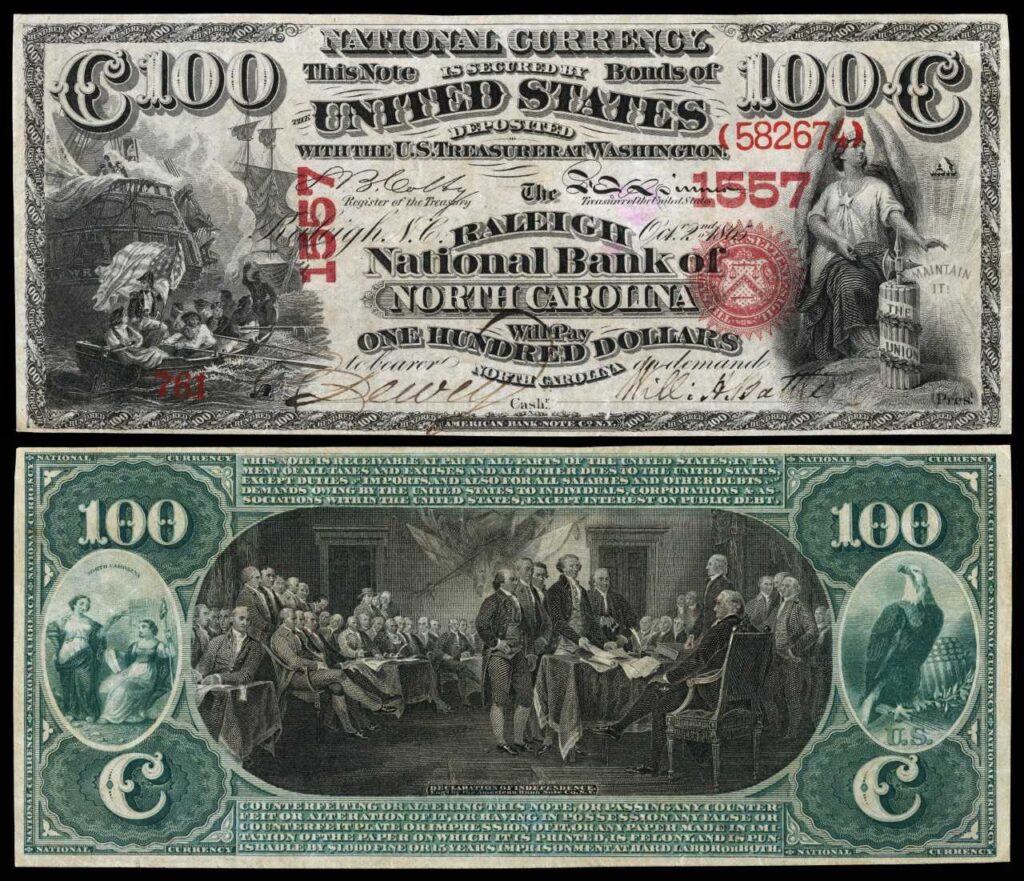
July 4, 2026, will mark the 250th anniversary of the Declaration of Independence and, therefore, of the United States of America. But the year to which that anniversary points us, the revolutionary year of 1776, also saw a kind of birth announcement for another of the modern West’s great achievements. In March of that year, the Scottish moral philosopher and proto-economist Adam Smith published An Inquiry into the Nature and Causes of the Wealth of Nations. Smith did not invent or launch the market economy, needless to say. But his description of its core assumptions, foundations, and implications stands as a milestone in the history of liberty.
That the United States and what we have come to call capitalism were announced to the world at nearly the same moment is fitting. The United States is now the world’s dominant economy by far, and in most respects, it must be counted the wealthiest society in human history. And it is here that the market economy has played the most definitive role in shaping the ethos of a modern nation. The earliest stirrings of what would become the American Revolution also began as a response to some of the abuses of mercantilism—the economic system that modern capitalism arose to critique and replace.
But was the American Revolution—as some of its champions and some of its critics have claimed—fundamentally an economic uprising? Was it a tax revolt motivated by the interests of wealthy merchants and farmers? How were the arguments for representation, democratic accountability, individual liberty, and universal equality espoused by the revolutionaries related to these economic concerns? To what extent were the passions of the broader American public rooted in the sorts of priorities that would come to define our capitalist ethos? And how did our revolutionary roots then give form to the dynamism, energy, and competitive character of America’s subsequent economic life? Questions like these are essential to understanding the meaning and heritage of the American Revolution. And it is crucial to ask them not cynically but seriously—in ways not intended to disparage the American revolutionaries’ motives and choices but to understand them more fully and therefore also appreciate them more comprehensively.
To better appreciate our country by more fully understanding it is precisely the purpose of the ambitious birthday celebration of which this volume forms a part: The American Enterprise Institute’s “We Hold These Truths: America at 250” initiative. Over several years leading up to the anniversary of the Declaration of Independence, we are inviting scholars both within AEI and from other institutions to take up a series of themes important to understanding the American Revolution. These scholars represent various fields and viewpoints, so they will approach these themes from various angles. The papers they produce will be published in a series of edited volumes intended to help Americans think more deeply and clearly about our nation’s origins, character, and prospects.
Capitalism and the American Revolution is the second of those books. Its chapters began as papers presented at an AEI conference held in Washington, DC, on April 15, 2024. Other volumes in the series consider the American Revolution in relation to other themes, such as democracy, religion, natural rights, the legacy of slavery, and the Constitution.

The provocation involved in approaching our subject under the heading of “capitalism,” rather than “economics” or another more general term, is intentional. We recognize that capitalism began as an epithet and has in some respects become one again. Yet we do not use the term disparagingly. We use it to describe the market economy—its theory and practice, aims and consequences, technical and moral facets, benefits and costs, and ultimately the way of life it describes and to which it is unavoidably attached. To use this term to describe all of that is to self-consciously embrace its champions and critics and seek to learn from both, rather than semantically distance ourselves from one group or the other.
In the chapters that follow, five eminent scholars of economics, history, and public policy consider how we ought to understand modern capitalism and its connection to the American Revolution.
Jay Cost explores the American founders’ deep divisions regarding the character of the American economy. The competing collections of views that ultimately cohered around the followers of Thomas Jefferson and Alexander Hamilton had to do with the deep connections between economic and political priorities, and their disputes reached to the core of the early republic’s politics and remain relevant in our own day. Cost suggests that the American market economy’s development has made it difficult for us to grasp what the Jeffersonians in particular had right—but that recovering a sense of their concerns would be well worth the effort.
Clement Fatovic argues that the American Revolution stemmed from and accelerated powerful trends toward greater social and political equality and that the market character of the American economy had a lot to do with where these trends came from and how they advanced. It was that character of American economic life, he writes, that made the American Revolution not just a repudiation of rule by hereditary elites an ocean away but also a refusal to allow aristocracy to take hold at home.
Deirdre Nansen McCloskey shows that some familiar narratives about the Revolution’s economics are misguided. The Americans were not economically downtrodden or oppressed by the British, and the war made America not wealthier but poorer in the near term. The most important implication of the Revolution was the advancement of the fundamental idea of equal liberty—an idea with important economic dimensions, though it was ultimately a moral claim. And its pursuit in practice has been America’s great gift to the world.
Richard A. Epstein highlights how the legal and jurisprudential consequences of the Revolution made possible the dramatic economic transformation of American life that ultimately followed. The Revolution as a political matter was a sharp break, he argues, but as a legal matter it involved some crucial continuities. And the combination of the two made for a legal order that prioritized commerce, competition, and a freedom of action that facilitated the miracle of America’s subsequent economic growth. But this market-oriented character of American law and constitutionalism has always been controversial and remains intensely contested in our day.
Finally, Christopher DeMuth illustrates how the framework of what he terms “competitive pluralism” characterized the approach of the American founders to economic questions and, ultimately, the deepest kinds of social questions. Drawing on a vast array of examples and evidence, he shows how structured institutional competition has always been key to the distinct character of American public life and that it is evident at the foundation of our economic and political practice. It may harbor the secret to our national success—if we can appreciate its value and continue to apply it.
The range of arguments put forward in these chapters is evidence of the centrality of economic concerns in the thought and action of the American Revolution. But a clear thread nonetheless runs through these varied approaches to the question: Rather than cynically viewing political ideas and movements for change as mere masks for economic interests, we would be wise to understand what we think of as economic concerns as part of a far broader tapestry of interests, forces, and ideas that underlie the public life of a free society. Material and financial concerns don’t stand apart from political philosophy or national interest. They are intertwined to an extent that should warn us away from any simpleminded cynicism. No one is purely an economic actor.
Considering the American Revolution through an economic lens is therefore essential but also insufficient. Like this volume, it is just one of several ways to understand the meaning of our founding on this momentous anniversary—and to celebrate its achievement.


